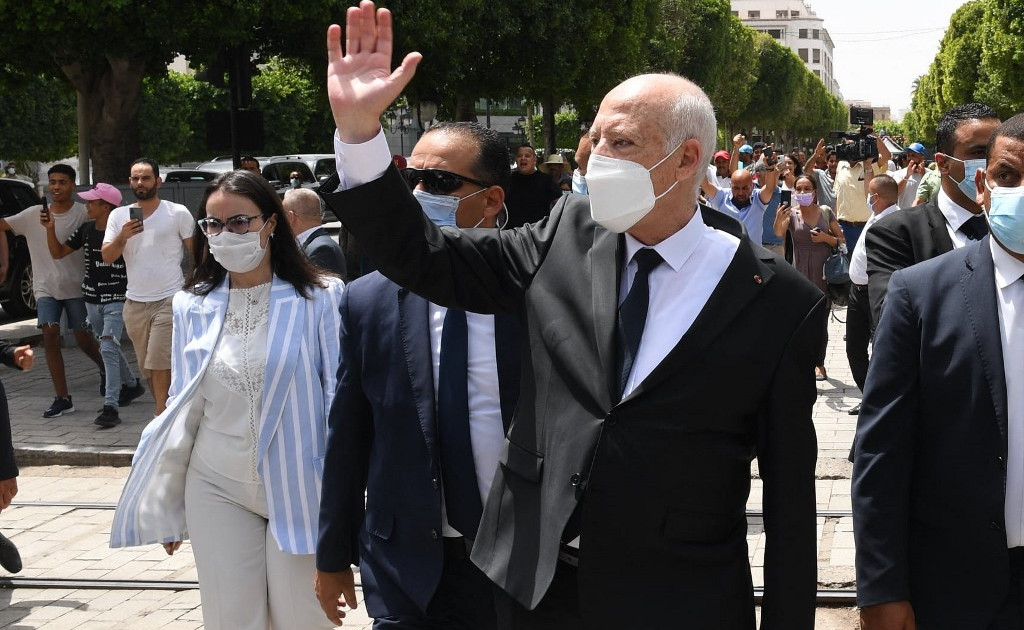Saied also extended the suspension of the immunity of members of parliament a month after he dismissed country’s prime minister.
Tunisian President Kais Saied has extended the suspension of parliament until further notice, the presidency said, after last month dismissing his prime minister and assuming executive authority in a move opponents branded as a coup.
Saied also extended on Monday the suspension of the immunity of members of parliament, the presidency said, adding Saied will give a speech to the nation in the coming days, without giving more details.
A month after Saied’s sudden intervention, he has not yet a new prime minister or announced a road map demanded by Western allies and key players in Tunisia, including the powerful UGTT Union.
Saied has said his intervention was needed to save the country from collapse.
He appears to have widespread popular support in Tunisia, where years of misgovernance, corruption and political paralysis have been aggravated by a deadly surge in COVID-19 cases.
But the president’s moves have raised concerns among some Tunisians about the future of the democratic system that the country adopted after its 2011 revolution that triggered the Arab Spring.
Authorities have since placed several officials, including former ministers, under house arrest and prevented politicians and businessmen from travelling.
Saied was elected in a landslide in 2019 promising to stand up against corruption.
Ennahdha political reshuffle
In a separate development in Tunisia, the head of Ennahdha party, Rached Ghannouchi dismissed the party’s executive committee amid criticism of his handling of a month-old political crisis.
The decision taken by Ghannouchi, the parliament speaker, led Saeid to assume executive authority in July, dismiss the prime minister and freeze parliament, an intervention labelled by Ennahdha as a coup.
However, prominent leaders from within his party, the largest in Tunisia’s parliament, have demanded that he quit the leadership amid divisions over its response to the crisis and his strategic choices since a 2019 election.
“Ennahda’s head decided to dismiss the party’s executive members and restructure it in a way that responds to the requirements of the phase,” the party said in a statement.
Ennahdha has been the most consistently powerful party in Tunisia since the 2011 revolution that led to the removal of its longtime president, playing a role in backing successive coalition governments.
However, it has lost support as the economy stagnated and public services declined.

